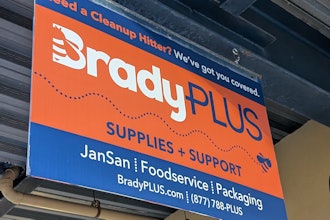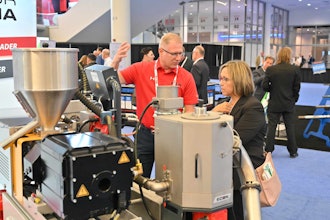
As Americans have grown increasingly more cognizant of the nutritional value of what they eat, the nation’s food producers have responded by adjusting their marketing campaigns to target this growing interest. On the one hand, these health claims often increase consumer interest and market share. On the other hand, the claims could prompt litigation from plaintiffs alleging unlawful business practices. Companies need only look to recent lawsuits against the manufacturers of spreads, breakfast foods, dairy products, soft drinks, and other products where allegations regarding the mischaracterized healthfulness of these products have found varying degrees of success. These cases, in turn, have spurned additional litigation in this area. The theories of liability and legal arguments made in these cases, as refined with the benefit of hindsight, are now squarely focused on other manufacturers who promote their products as healthy. One such group of potential defendants are producers in the meat industry.
Meat producers have long advertised their products as “heart-healthy” and “part of a balanced and nutritional diet;” some claim that their products reduce cholesterol, support healthy arteries, and promote healthy blood pressure. These claims—unlike the claims that a product is “organic,” “natural,” or “certified,” which are regulated by the USDA—are not regulated and do not provide any guarantees to consumers. Despite this, food and drink manufacturers who have touted the healthfulness of their products have found themselves in proverbial hot water. For example, Ferrero paid $3 million to settle claims that its hazelnut spread, Nutella, was a “tasty yet balanced breakfast,” while Kellogg’s paid $5 million to settle a nationwide class action accusing it of advertising that its Rice Krispies cereal could support the immune system. Likewise, YoPlait settled a class action in which it was alleged that its YoPlus product bore a label that misled consumers about the product’s digestive health benefits. Similarly, several varieties of 7-Up had to be taken off the market earlier this year after an advocacy group alleged that the drink’s claims gave the impression that antioxidants in the soda come from fruit rather than from added vitamin E. Moreover, the marketing practices for each of these products had to be halted and the allegedly offending advertisements pulled as part of the respective settlement agreements.
The blueprint from these litigations is an easy one for plaintiffs to follow, and in the last year alone, dozens of similar cases have arisen. Following this blueprint, the overwhelming majority of these complaints have been filed in California (though New Jersey and Florida have also been popular), where courts have proven themselves to be open to claims regarding food and drink healthfulness.
Recently, plaintiffs have widened their focus from heavily processed products to much more simple ones, such as tuna, bread, and nuts. For instance, one class action challenged Diamond Foods’ representations that the omega-3 fatty acids found in their walnuts promoted heart health, and the company ultimately agreed to pay up to $2.6 million to settle the suit. Thus, the recent shift from products such as cereal and soda implies that it may be only a matter of time before the meat industry’s claims about the healthfulness of its products likely will also come under the microscope. This is particularly true in light of recent studies that have linked animal product consumption to increased instances of heart disease, cancer, and stroke.
Given their position as the potential caboose of this litigation train, meat producers have at their disposal certain tactics that have been successful in other labeling and marketing litigations. There are also various steps that meat producers could take now to bolster such arguments in future potential litigation, and to otherwise mitigate claims of consumer fraud. Listed below is a roadmap that meat producers can use to mount a strong defense against such claims.
- Failure to allege fraud with the requisite particularity. To make a valid legal claim, plaintiffs must allege sufficient facts to show why the product did not work as advertised. With studies conflicting on the healthfulness of meat consumption, plaintiffs would be hard-pressed to find undisputed data indicating that a meat producer’s statements were false or misleading. The challenge for plaintiffs would be even greater if the meat producer at issue (1) avoided numerical assertions, and (2) ground its claims in peer-reviewed studies or trials. The use of non-quantitative claims can create an obstacle for plaintiffs, as such claims cannot be as readily refuted as quantitative ones, and scientific evidence, by contrast, is the strongest defense against claims of false advertising.
- Denial of class certification. For a case to be certified as a class action, common issues of fact or law must predominate in the plaintiffs’ claims. Numerous arguments can be made that the individual issues involved in each putative class member’s claim would ultimately predominate. Namely, every plaintiff would have a different answer to questions of where, when, and why they purchased the alleged offending products, as well as to questions of the price they paid, the quantities they purchased, the advertisement(s) by which they were impacted, and their general knowledge of meat’s healthfulness.
- Lack of entitlement to monetary relief. Plaintiffs would not be entitled to a refund of their full purchase price, but rather to the difference between what the plaintiffs paid and the value of what they received. Even if the meat that plaintiffs purchased was not as healthy as advertised, it still had some market value that accrued to plaintiffs. Therefore, the proper measure of any restitution would be the difference between the value of meat billed as “healthy” and the value of a comparable product not marketed in this way. Competitive pricing can thus bring calculations of damages down significantly, and can thereby deflate plaintiffs’ aspirations.
While the above suggestions are a good place to start, additional defenses—including, among others, lack of standing, insufficient evidence of reliance, and lack of injury in fact—can be tailored to the facts of each case. Moreover, the knowledge gleaned from similar cases involving such products as cereals, soft drinks, and nuts, allows forward-looking companies to avoid the pitfalls of labeling and marketing litigation.
Sheila S. Boston has a complex commercial litigation practice and is a member of Kaye Scholer’s Product Liability Group, which has been ranked in the top tier for Product Liability Litigation by Chambers USA in 2007-2013. Sheila has practiced before both state and federal courts, and has MDL experience in mass tort actions. She can be reached at [email protected].
Leo Rakitin is an Associate in Kaye Scholer's Litigation Department. He has experience defending major corporations in complex state and federal investigations. He can be reached at [email protected].






















